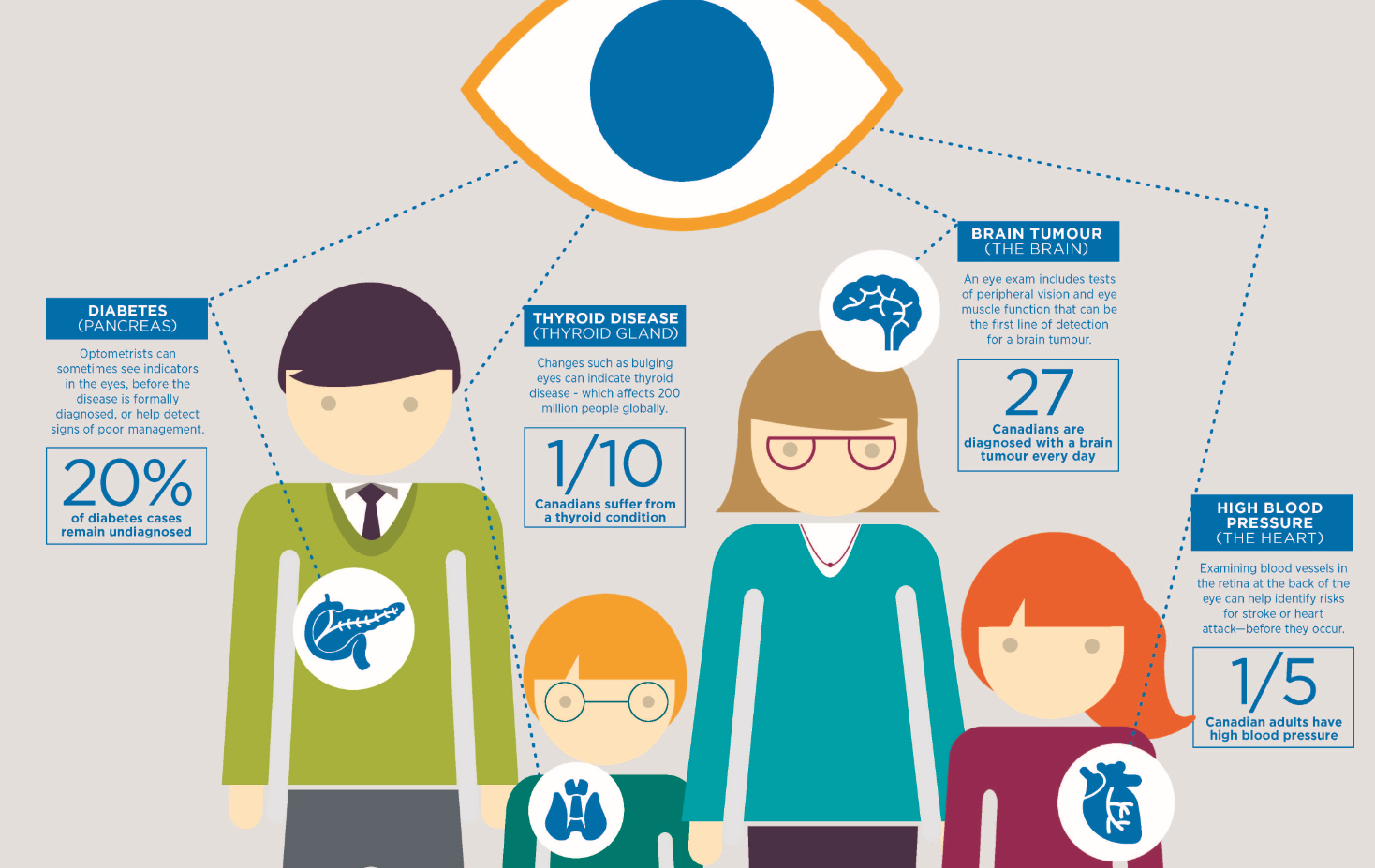During a comprehensive eye exam, Dr. Lee does much more than just determine your prescription for glasses or contact lenses. She will also check your eyes for common diseases, assess how well they work together as a team, and look for indicators of potentially serious health conditions that affect your whole body. A number of underlying health conditions can be detected through a comprehensive eye exam, ranging from high blood pressure and diabetes to certain forms of cancer. Because the eye is the only part of the body in which blood vessels can be viewed without invasive techniques, it can be the first place that conditions like high blood pressure is detected. Other health conditions that may show signs in the eyes include tumours, aneurysms, autoimmune disorders, thyroid disease, sickle cell disease, liver disease, multiple sclerosis, Parkinson’s disease, and other neurological or brain disorders.
A comprehensive eye exam includes tests of peripheral vision and eye muscle function and can often be the first line of detection of a brain tumour. The eye and its surrounding tissues are one of the most common areas of the body where skin cancer is first diagnosed. The muscles attached to the eye that are responsible for coordinated eye movements are controlled through nerves that arise directly from the brain. Several neurological conditions, which affect the brain, including Parkinson’s disease and Progressive Supranuclear Palsy, can affect eye movements and even cause double vision.
A comprehensive eye exam can detect problems with eye movement, and vision training or spectacle (eyeglass) therapy can improve the ability of the eyes to track and work together.


